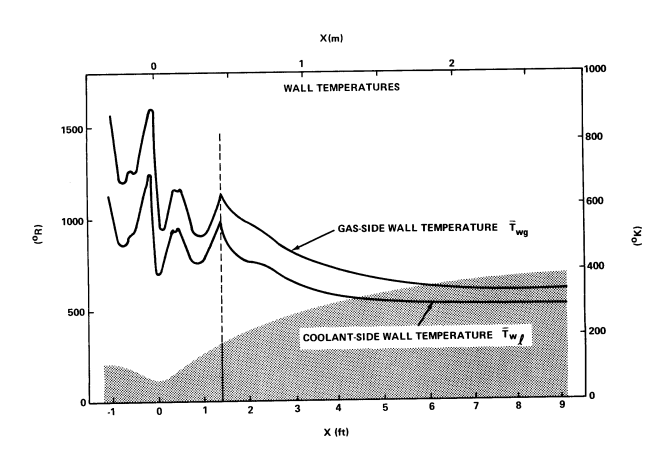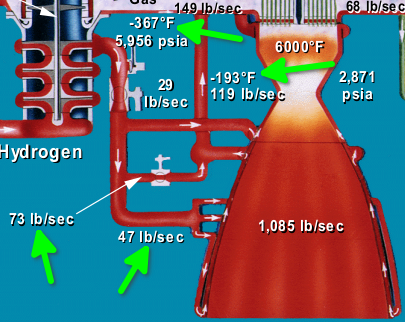Direct measurement is difficult; I've seen some optical methods used but can't put a hand on them at the moment.
Here are some calculated inner and outer wall temperatures for the Space Shuttle Main Engine, a regeneratively-cooled booster engine. The X axis is axial distance from the throat. I am pleased to see that both metric and English units are provided.

The source paper, Wall temperature distribution calculation for a rocket nozzle contour, is very informative.
We can sanity check these numbers using some data from the SSME INTRO presentation.

Given a bypass flowrate of 73 lb/sec at -367 deg F, a nozzle cooling flowrate of 47 lb/sec, and a mixed exit temperature of -193 deg F, we can do a mass-flowrate-weighted average calculation to get a nozzle cooling exit hydrogen temperature of 77 deg F, or 536 deg R, roughly matching the graph above for the nozzle wall temps at the exit.
$$T_{\mathrm{mixed}} =
\frac {
T_{\mathrm{bypass}}\times\dot m_{\mathrm{bypass}} +
T_{\mathrm{nozzle}}\times\dot m_{\mathrm{nozzle}}}
{(\dot m_{\mathrm{bypass}} + \dot m_{\mathrm{nozzle}})} $$

